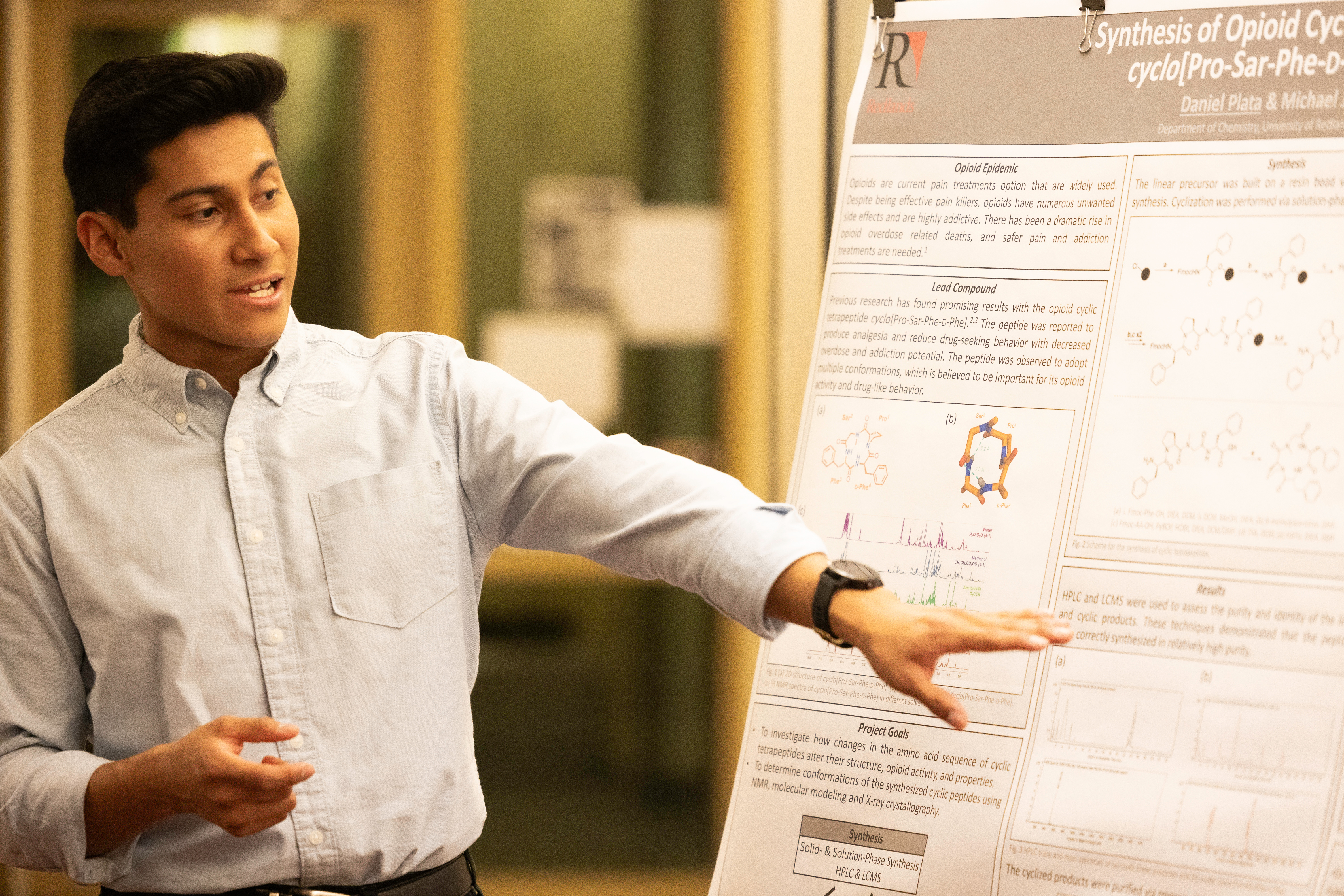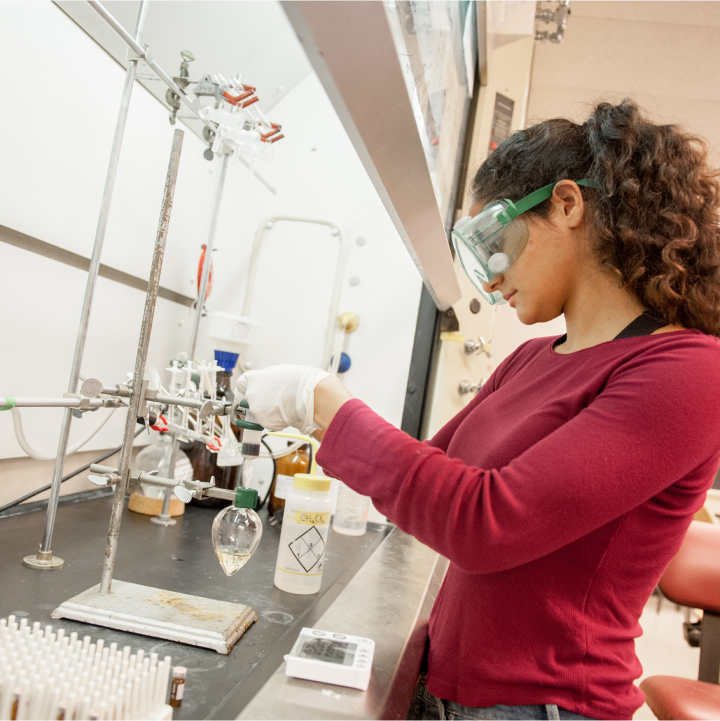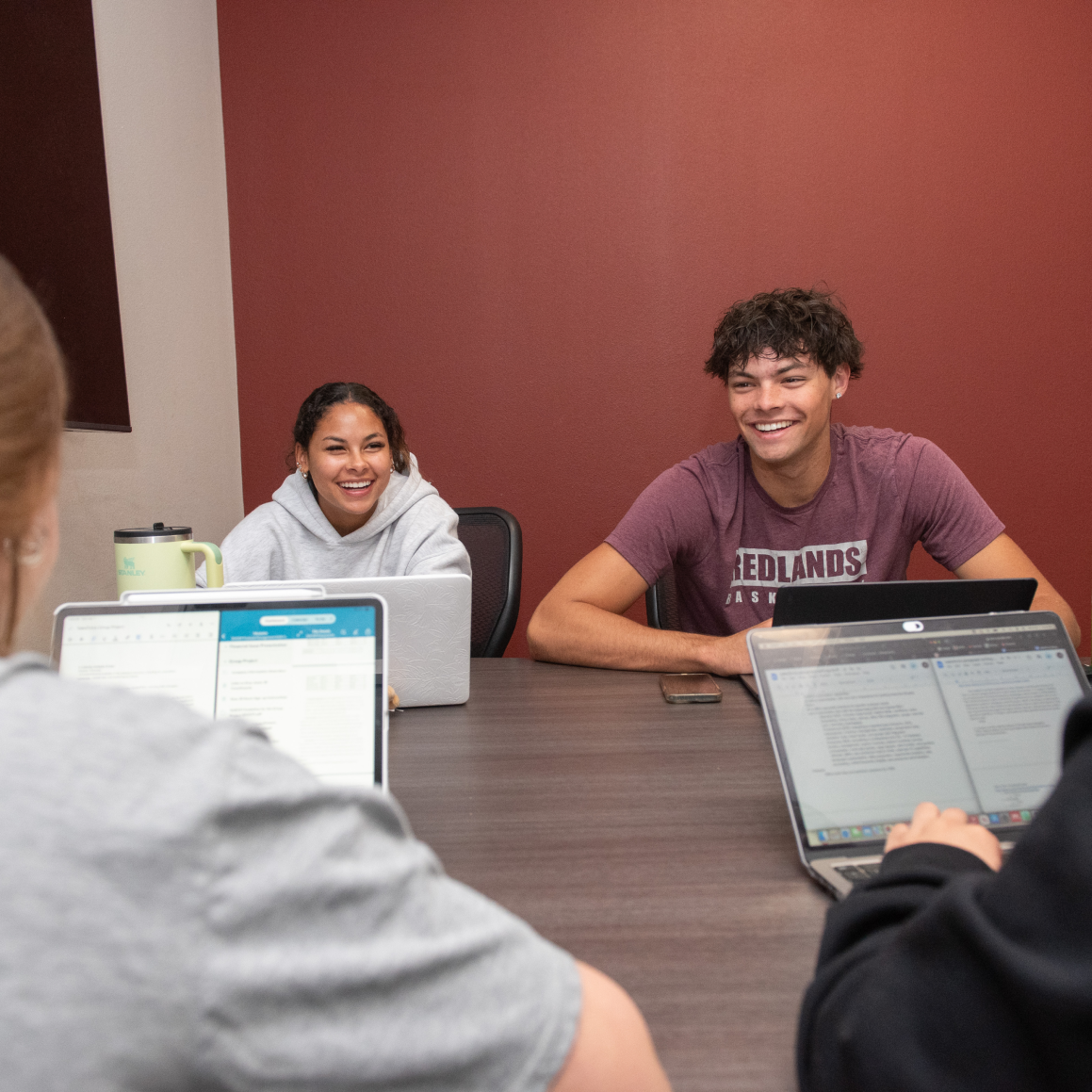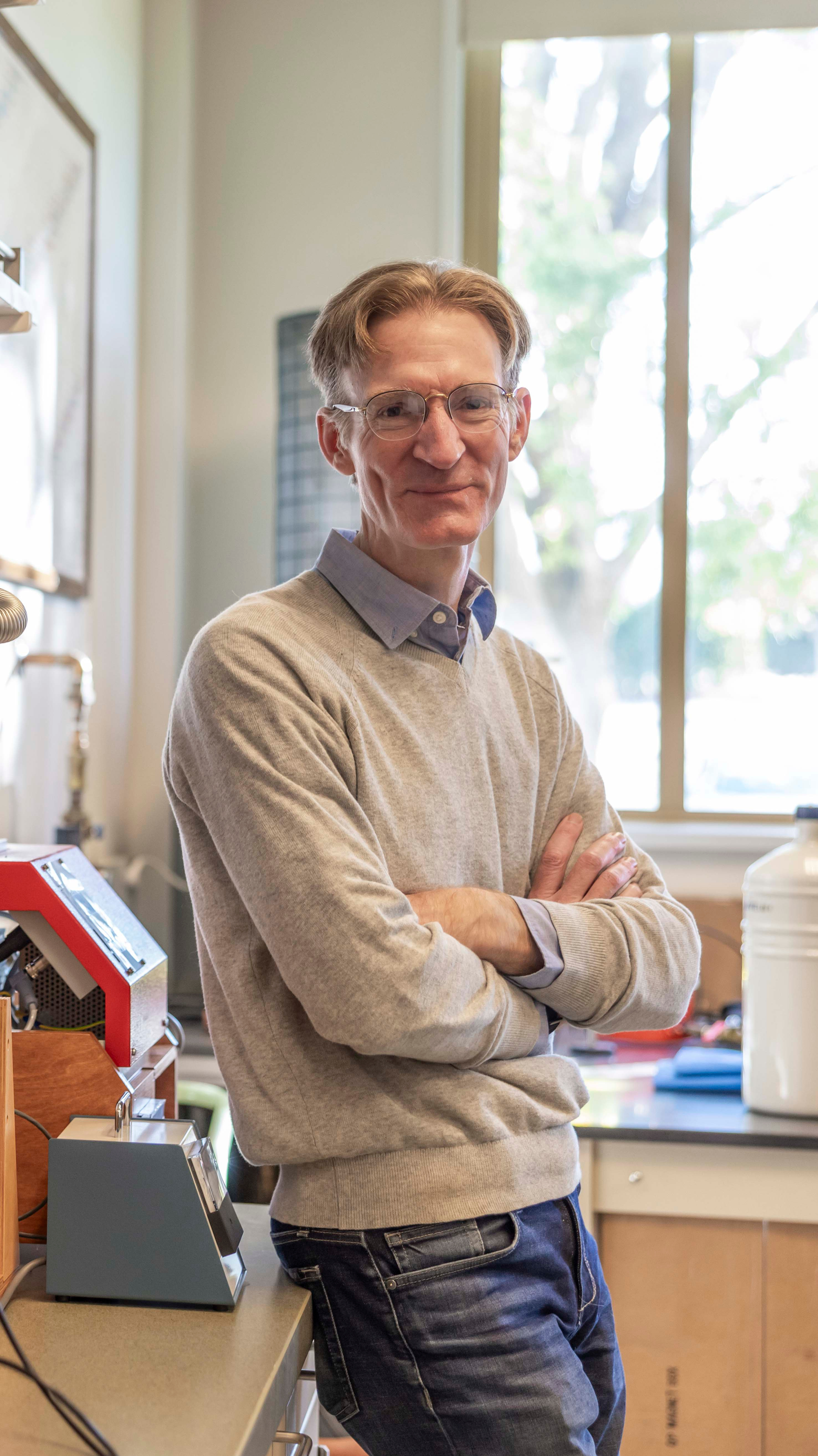Find us on campus

Appleton Hall

Physics investigates and models nature in the most precise and fundamental ways possible. It is a driving force in the continual scientific and technological revolutions that define the modern world. The Bachelor of Science in Physics program offers rigorous training in the fundamentals of physics, from classical to quantum mechanics. The program prepares you for graduate studies or technical field applications. Graduates will be well grounded in all aspects of physics and equipped to choose a specialized area for further their study and research.
If you are a motivated student interested in physics and research, then you will excel in the physics program at University of Redlands. Outside of regular coursework, you will have the opportunity to perform research with expert faculty, who will mentor you in small and intimate classes, allowing for 1:1 guidance and mentorship. Outside of the University, you will have additional opportunities for research during the school year or over the summer with organizations like the Stauffer Center for Science and Mathematics, the National Science Foundation's Research Experiences for Undergraduates (REU) program, and the Department of Energy's Science Undergraduate Laboratory Internships (SULI) program. Additionally, for students interested in pursuing astronomy, the physics department is proud to host an automated telescope on Appleton Hall. Donated by the Taylor family, the Astronomy Student Taylor Robotic Observatory (ASTRO) is used for research and education projects. As a graduate of the physics program, you will be prepared to continue to graduate school to study physics, astronomy, engineering, and medicine or jump straight into the job market in high-paying fields like software, engineering, education, or management.
Complete ALL of the following courses:
Complete ALL of the following courses:
Complete at least 4 courses in the following course sets:
Choose four courses, with at least one from each category.
Minoring in physics at Redlands will provide you with an understanding of the basic laws of the physical universe. When combined with a major in another science, you will be well prepared for graduate study in the sciences. To view specific requirements and coursework information, visit the current university catalog.
Early Action 1: November 1
Early Action 2: December 1
Regular Decision: January 15*

Appleton Hall



At Redlands, our students’ success is at the heart of everything we do. We offer experiential learning opportunities, but our CORE Four initiative takes that commitment to a deeper, intentional level. More than a set of experiences, the CORE Four is a framework for transformation. Learn more about how students can prepare for their academic journey.
Every Redlands faculty member is an active practitioner in their field. The classes they teach emerge from their unique research and practices, and they’re passionate about what they’re sharing. At Redlands, faculty are invested in and committed to your success.



Get in touch with our admissions team.